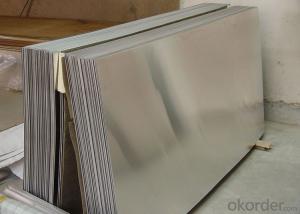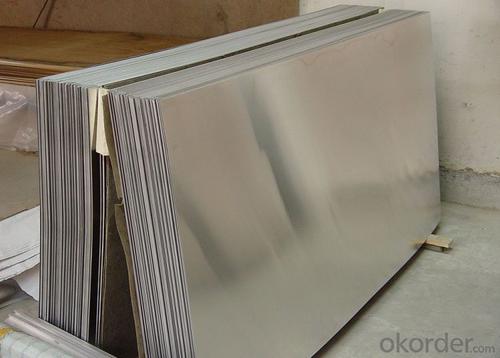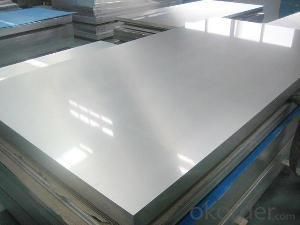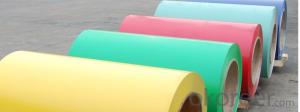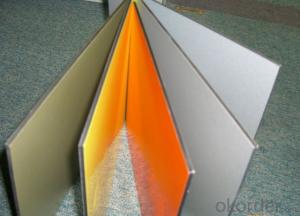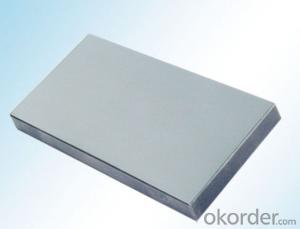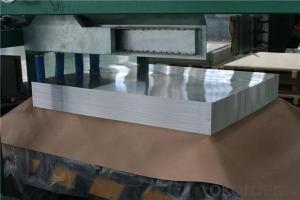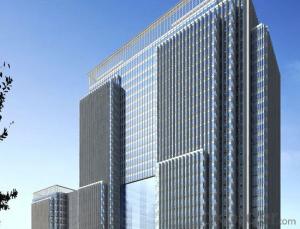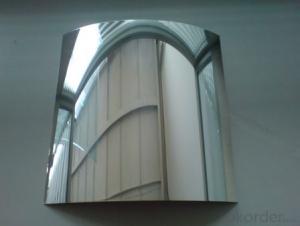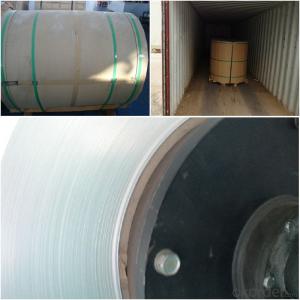Home Depot 0.020 Plain Aluminum Sheets - 1000 3000 5000 Series Cast Rolled Hot Rolled Mill Finish
- Loading Port:
- Shanghai
- Payment Terms:
- TT OR LC
- Min Order Qty:
- 5 m.t.
- Supply Capability:
- 5000 m.t./month
OKorder Service Pledge
OKorder Financial Service
You Might Also Like
l Product details
| Product Name | Mill finish aluminum sheet |
| Alloy | 1050,1060,1100,3003,3004,3005,3105,5005,5052,5754,5083 |
| Temper | O, H12,H14,H16,H18,H22, H24,H32,H112 |
| Thickness | 0.18mm-350mm |
| Width | 300mm-1930mm |
| Inner packing | PVC film(30 μm, 60 μm, 80 μm) or Paper inter leaved |
| Outside packing | International wood pallet(fumigated) with steel strip |
b.Mechanical property
| Alloy grade | Bend | Tensile Strength( Mpa) | Elongation (%) |
| 1100 H14 | 1/2 closed | 132 | 13 |
c.Chemical composition
| Alloy grade | Si (%) | Fe(%) | Cu(%) | Mg (%) | Cr (%) | Mn (%) | Zn (%) | Ti (%) | Al (%) | Standard |
| 1100 H14 | 0.102 | 0.501 | 0.069 | <0.03< span=""> | <0.005< span=""> | <0.03< span=""> | <0.03< span=""> | 0.0191 | else | GB/T3880-2006 |
l Packaging & Delivery
Packaging detail: wooden cases that are suitable for long distance exporting
Delivery detail: 25-30 days after receiving L/C or payment in advance
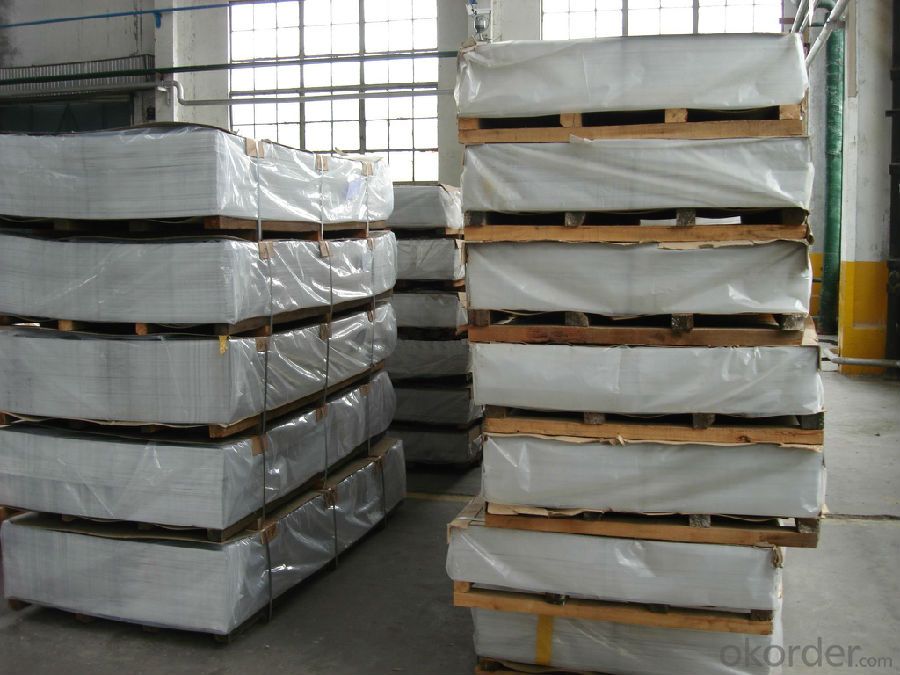
l Company Profile
CNBM International Corporation, China National Building Materials (Group) Corporation, is one of the largest companies in China building material & equipment industry, with 42,800 employees and sales in 2005 of US Dollar 4.395 billion. In 2006, China National Building Material Company Limited was listed on Hong Kong Stock Market with the stock code as 3323. The business scope of CNBM covers from manufacturing and sales of a series of building materials to scientific research and design, import and export trade. In many of these fields, CNBM is playing the leading role.
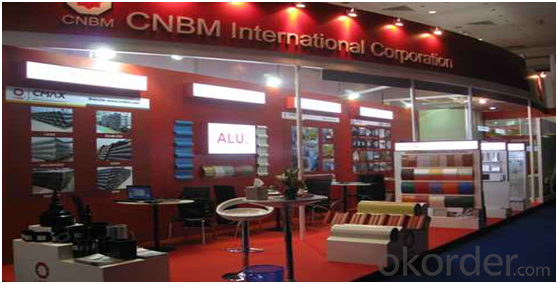
l Product Images
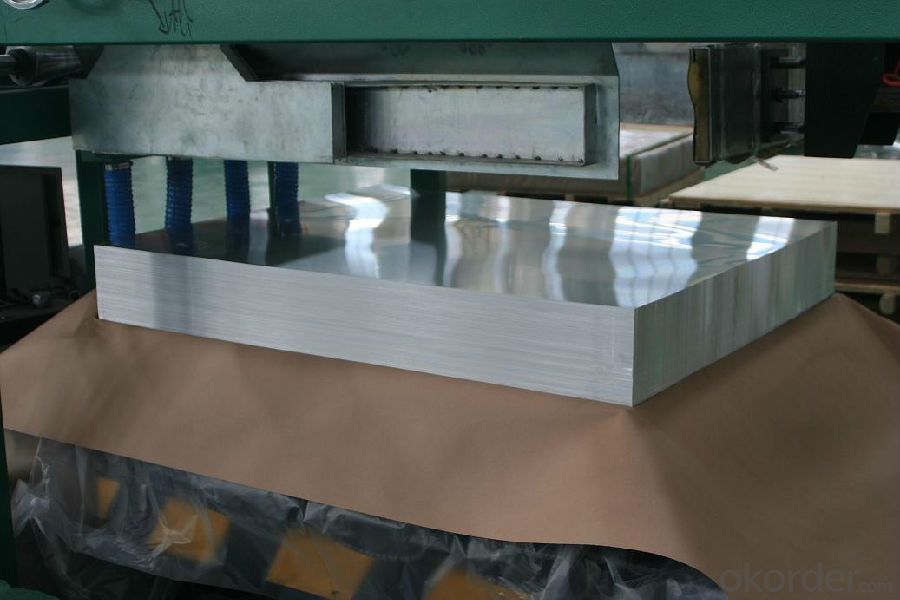
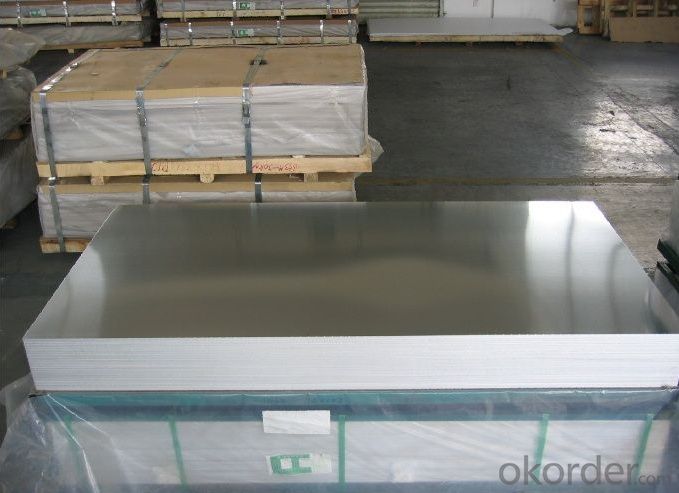
l FAQ
Q: Do you provide free samples?
A: Yes, free samples will be sent to you on freight at destination.
Q: Can I get your latest products catalogue?
A: Yes, it will be sent to you in no time.
Q: What is the MOQ?
A: 5 tons
Q: What are your payment terms?
A: We accept L/C, T/T.
l Contact Us
Name: Amanda Qian
Email: amandaqian@okorder.com
- Q: Are the aluminum sheets suitable for welding?
- Yes, aluminum sheets are suitable for welding. Aluminum is a popular material for welding due to its lightweight, high strength-to-weight ratio, and corrosion resistance. However, it is important to note that welding aluminum requires specific techniques and considerations compared to other metals. Aluminum has a low melting point and high thermal conductivity, which makes it more challenging to weld compared to steel or other metals. Specialized welding processes, such as Tungsten Inert Gas (TIG) welding or Metal Inert Gas (MIG) welding with a spool gun, are commonly used for aluminum welding. Additionally, proper cleaning and preparation of the aluminum surface, as well as the use of appropriate filler materials, are crucial for achieving strong and durable welds. Overall, with the right equipment, techniques, and expertise, aluminum sheets can be successfully welded to create various structures and components.
- Q: How do you prevent galvanic corrosion when using aluminum sheets with saltwater?
- To prevent galvanic corrosion when using aluminum sheets with saltwater, several measures can be taken. Firstly, applying a protective coating or paint to the aluminum surface creates a barrier between the metal and the saltwater, reducing the chances of corrosion. Secondly, using sacrificial anodes made of a more reactive metal, such as zinc, can divert the electrolytic current away from the aluminum sheets, preventing corrosion. Additionally, ensuring proper insulation and avoiding contact with dissimilar metals can also help minimize the risk of galvanic corrosion in saltwater environments.
- Q: I have been doing this science prac at school and I have received some strange results. I measured the density of this metal, which leads me to believe it is Aluminium. Also, its silvery appearance supports this. When I have attempted to react it with Hydrochloric Acid, Sulfuric Acid and the nitrates/chlorides of a few metals, I have received some odd results.Despite having a high reactivity, the only substance it has reacted with so far out of all of the above is Tin Chloride. Am I doing something wrong? Is it possible that it isn't aluminium and rather a similar metal such as zinc? Thanks in advance :)
- Aluminum is very reactive so what happens is that it has a coat aluminum oxide as soon as it comes in contact with oxygen the outer layer forms aluminum oxide Al2O3. That is why Aluminum does not rust. The Al203 coat protects it.
- Q: What are the surface treatment requirements for aluminum sheets in the food industry?
- In the food industry, aluminum sheets are commonly used due to their excellent corrosion resistance and lightweight properties. However, certain surface treatment requirements need to be met to ensure the safety and quality of the food products. Firstly, aluminum sheets used in the food industry should undergo a cleaning process to remove any impurities or contaminants. This can be achieved through various methods such as chemical cleaning, alkaline cleaning, or mechanical cleaning. The purpose is to eliminate any potential sources of contamination that could affect the food's taste, odor, or safety. Furthermore, the surface of the aluminum sheets should be properly finished to prevent any interactions between the metal and the food. Anodizing is a popular surface treatment method, which creates a protective oxide layer on the aluminum surface. This layer not only enhances corrosion resistance but also provides a barrier against any potential migration of aluminum ions into the food. Additionally, it is crucial to ensure that the surface treatment materials used are food-grade and compliant with relevant regulations. The food industry has specific guidelines and standards in place to ensure the safety and suitability of materials that come into contact with food. Therefore, the surface treatment process should adhere to these standards to prevent any health hazards or contamination risks. Regular inspection and maintenance of the surface treatment are also necessary to guarantee its effectiveness over time. This includes monitoring the integrity of the protective layer, identifying any signs of wear or damage, and taking appropriate actions to address them promptly. In summary, the surface treatment requirements for aluminum sheets in the food industry include thorough cleaning, proper finishing, the use of food-grade materials, and regular maintenance. These measures are crucial to ensure the safety and quality of the food products and to comply with industry regulations and standards.
- Q: What are the different machining options for aluminum sheets?
- Some of the different machining options for aluminum sheets include cutting, drilling, milling, turning, and bending. These processes can be performed using various tools such as saws, drills, milling machines, lathes, and press brakes. Additionally, laser cutting and waterjet cutting are also common methods used for machining aluminum sheets.
- Q: What safety measures should be considered when handling large quantities of aluminum sheets?
- <p>When working with large amounts of aluminum sheets, it's important to take several precautions. Always wear protective gloves and eyewear to prevent cuts and eye injuries. Ensure good ventilation to avoid inhaling aluminum dust, which can be harmful. Use proper lifting techniques to avoid back injuries, and never exceed the weight limits of any equipment. Store aluminum sheets in a dry, cool place to prevent corrosion. Be cautious of static electricity buildup, which can be a fire hazard, especially in dry conditions. Finally, be aware of the risk of aluminum dust igniting, so avoid open flames and sparks near stored or processed aluminum sheets.</p>
- Q: For example, in hydrangeas, when aluminum reacts with the anthocyanins in the flower's petals, the hydrangeas turn blue, but what chemical reaction occurs?
- Two factors affect the color in Hydrangea macrophylla cultivars: soil acidity and the presence of aluminium in the soil. To obtain a blue hydrangea, aluminum must be present in the soil. The pH of the soil should be low (4 - 4.5). In alkaline soil aluminium is tied up. The plants are unable to absorb the existing aluminium and the flowers will not bloom blue. Also, when aluminium in the soil is used up the flower color will be red or pink again. If the soil is watered with aluminium salts aluminium is accumulated in the petals and the color turns blue. Only red and pink colored Hortensis are suitable for the breeding of blue flowers. They contain the dye component delphinidin. At the end of this site you find explanation and the formula: www.uni-regensburg.de/Fakultaeten...
- Q: What types of aluminum sheets are recommended for use in cold climates?
- <p>Yes, there are specific types of aluminum sheets suitable for cold climates. These include 3003-H14 and 5052-H32 aluminum sheets. 3003-H14 is known for its excellent corrosion resistance and formability, making it ideal for cold weather applications. 5052-H32 offers high strength and good corrosion resistance, which is beneficial in extreme cold conditions. Both types can withstand low temperatures without significant loss of strength or ductility, ensuring reliability and durability in cold environments.</p>
- Q: Are aluminum sheets suitable for automotive heat shields?
- Certainly! Automotive heat shields can indeed utilize aluminum sheets. Aluminum is an exceptional option for heat management in automotive applications due to its lightweight nature and impressive conductivity. Its high melting point and excellent thermal conductivity properties allow it to efficiently absorb and disperse heat produced by the vehicle's engine, exhaust system, and other heat sources. Furthermore, aluminum sheets are easily moldable and can be crafted into diverse sizes and designs, making them adaptable for various automotive heat shield purposes. In summary, aluminum sheets offer an economical and effective means of safeguarding vulnerable components from heat-related harm within automotive systems.
- Q: Are aluminum sheets suitable for decorative lighting fixtures?
- Yes, aluminum sheets are suitable for decorative lighting fixtures.
Send your message to us
Home Depot 0.020 Plain Aluminum Sheets - 1000 3000 5000 Series Cast Rolled Hot Rolled Mill Finish
- Loading Port:
- Shanghai
- Payment Terms:
- TT OR LC
- Min Order Qty:
- 5 m.t.
- Supply Capability:
- 5000 m.t./month
OKorder Service Pledge
OKorder Financial Service
Similar products
Hot products
Hot Searches
Related keywords
